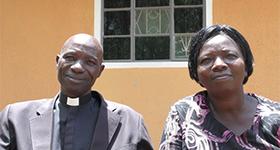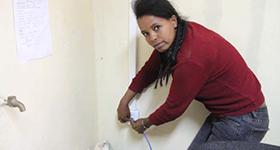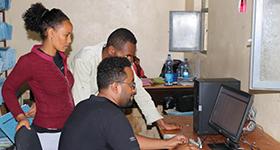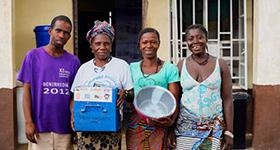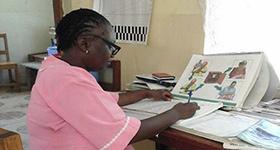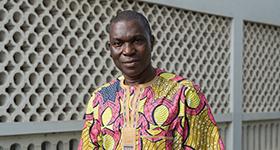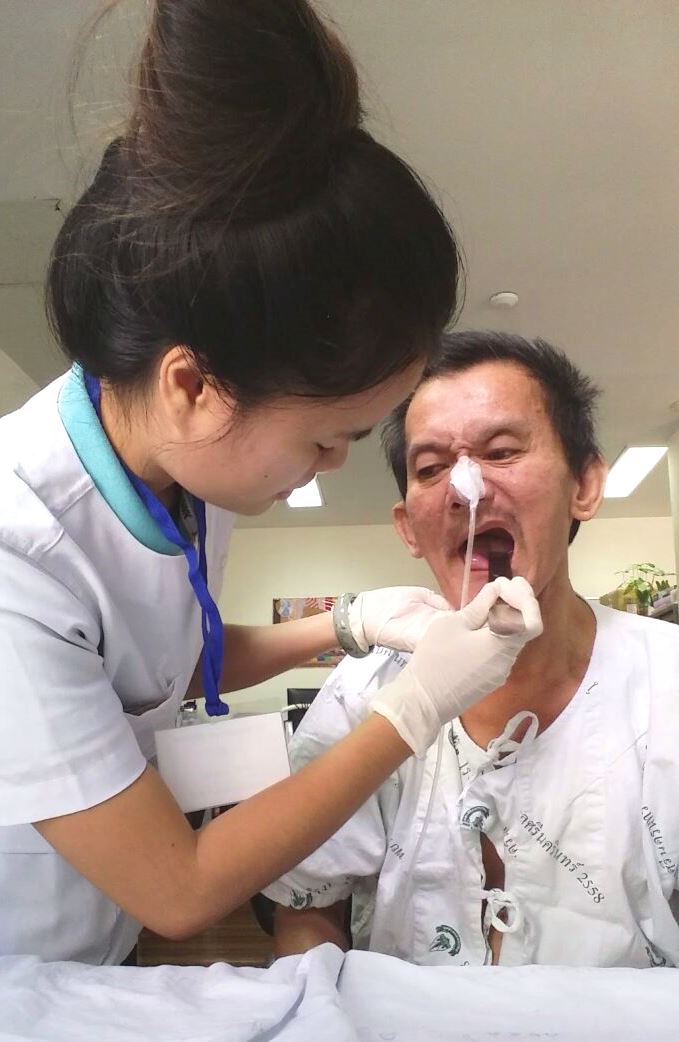
Ms. Wongkham Seepanya, a CMR physiotherapist, learned how to check patient’s swallowing after attending the Occupational Therapy Training in Khon Kaen University (KKU), supported by the USAID-funded World Education TEAM Project. Photo by: Wongkham Seepanya
Ms. Wongkham Seepanya, a Vientiane-based pediatric physical therapist at the Center for Medical Rehabilitation (CMR), attended a two-month Occupational Therapy Training at Khon Kaen University (KKU), supported by the USAID-funded World Education TEAM Project. Ms. Wongkham first worked as a physiotherapist for two years after her graduation. She cites her love of working with children as the reason for becoming a physical therapist. When she sees children with impairment, she’s committed to helping them function more effectively. In addition to feeling proud, she is delighted to see children smile when they recognize their progress through rehabilitative treatment.
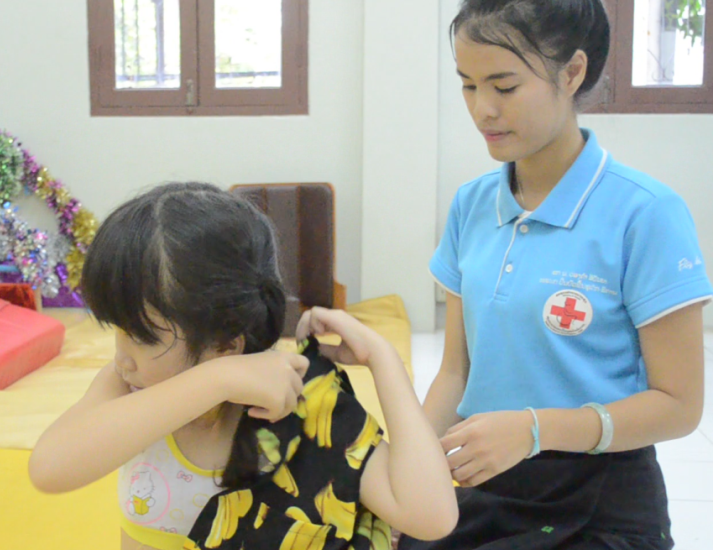
Ms. Wongkham Seepanya assists Mouay (her patient) as she dresses. Mouay, who has cerebral palsy, could not dress herself before, but, with the help of Vongkham, she is now capable of doing it. Photo by: Phon/WEL
Ms. Wongkham was very excited at the chance to extend her skills and knowledge through the training at KKU. She returned from training with a new outlook on her profession and an awareness of the importance of, and links between, the different professions and skills needed for comprehensive rehabilitation. After the training, she understood that occupational therapy is crucial in helping patients. Since returning to CMR, she has taken over more responsibility for providing occupational therapy advice and support for pediatric patients.
“I only knew about physical therapy before the training. Since the training, I now understand why occupational therapy is also essential for rehabilitation,” said Wongkham after the training. “Before, I only helped my patients with stretching and exercising their muscles, but now I can assist with their daily routines and activities essential for life, such as dressing and using tools to eat or drink.”
APC grantee,World Education, implements the TEAM Laos project with the goal of enabling people with disabilities (PwDs), especially women and girls to attain and maintain maximum independence to fully and equally participate in all aspects of life. The project combines World Education’s successful experience in assisting Lao unexploded ordnance (UXO) survivors and people with disabilities with its understanding of how to manage sub-grants, and how to build the capacity of local organizations that are working towards the common goal of assisting people with disabilities.

